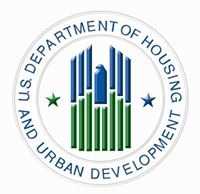This week focuses on awareness of lead hazards that housing rehab workers face and hazards at home
WASHINGTON – RealEstateRama – Despite our important focus on COVID-19, lead safety in the home remains a high priority for all Americans. The U.S. Department of Housing and Urban Development (HUD) is joining the U.S. Environmental Protection Agency, the Centers for Disease Control and Prevention, and additional partners, in highlighting this issue during National Lead Poisoning Prevention Week (NLPPW) 2020.
Lead poisoning is only detectable by blood testing and to create more awareness, NLPPW’s main themes are: Get the Facts, Get Your Home Tested, and Get Your Child Tested.
“National Lead Poisoning Prevention Week is one of our most important educational campaigns,” said HUD Secretary Ben Carson. “Many residents and maintenance workers don’t know the risks when performing renovations and lead repair work in older homes. By providing families, public housing staff, contractors, and others with this basic information we can eliminate lead-related health hazards and protect American families.”
To help commemorate the week, the Federal partners released a comprehensive digital toolkit, in English and Spanish as well as a special webinar program with leading experts. The webinars include sessions on how to safely renovate and repair, and lead poisoning prevention efforts during COVID-19.
Lead can be found in many things, but the main hazard to young children is from lead paint hazards in homes built before 1978. Adults and children can become lead poisoned, but children experience a greater degree of harm due to their developing bodies and brains.
HUD and its partners are targeting their NLPPW outreach to broad audiences. These includes lead poisoning prevention and healthy homes advocates; state and local health, environmental health, and housing departments; building inspectors and code enforcement officers; lead hazard control grantees; university educators; and others. These stakeholders play a key role in helping to spread the word within their local communities, and taking steps aimed at lead poisoning prevention.
To register for the webinar and to download the toolkits, visit: www.hud.gov/program_offices/healthy_homes/nlppw.








